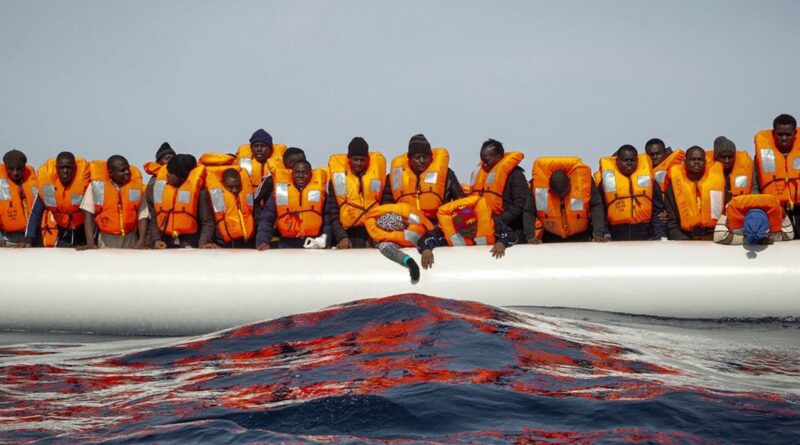Libya: Arbitrary Detentions and Impunity Widespread in Libya, Warns UN’s Türk
The desperate plight of migrants and refugees tortured, trafficked and sold “at scale” in Libya took centre stage at the Human Rights Council in Geneva on Tuesday, where UN rights chief Volker Türk urged the international community to consider halting its agreement with the north African country on asylum seekers and migration.
“Trafficking, torture, forced labour, extortion, starvation in intolerable conditions of detention” are “perpetrated at scale…with impunity”, the High Commissioner for Human Rights told Member States.
“Mass expulsions, the sale of human beings, including children” are widespread in Libya, Mr. Türk continued, insisting that collusion between State and non-State actors was ongoing, with victims subject to “dehumanization”.
In a call to the Libyan authorities to investigate crimes against the many thousands of vulnerable people on the move, the High Commissioner also highlighted the discovery of a mass grave in March in southwest Libya containing the bodies of 65 presumed migrants.
“As if this were not horrific enough, we are following up on reports of another mass grave recently discovered in the desert area at the Libyan-Tunisian border… The loved ones of those who died have every right to know the truth,” he said.
State of unrest
The High Commissioner also urged a review the longstanding arrangement between the European Union and the Libyan authorities tasked with intercepting migrants who attempt to cross the Mediterranean Sea to Europe. Independent rights experts and charities involved in search and rescue operations have frequently criticized the arrangement, citing alleged reckless behaviour by the Libyan Coast Guard, including firing at or near migrant vessels and ramming boats to make them capsize, before returning the survivors to Libya.
In the 12 months since April 2023, more than 2,400 people died or went missing trying to cross the Central Mediterranean Sea, of whom more than 1,300 departed from Libya, Mr. Türk noted.
“It is unconscionable that people in search of safety and dignity are suffering and dying in such unspeakable circumstances,” he insisted. “I remind all States of the collective responsibility under international law to save lives and prevent deaths at sea.“
Sahara perils
The High Commissioner also called for action to address the deaths “of so many migrants and refugees” heading to Libya via the Sahara Desert, following new estimates from the UN that twice as many migrants likely die trying to cross the sands than in the Mediterranean Sea.
Political strife the root cause
Just as those stark findings reflect the growing number of people attempting to make the Sahara crossing, pushed by new conflicts in the Sahel and Sudan, climate shocks and protracted emergencies in the East and Horn of Africa, the dangers for migrants and refugees in Libya come amid ongoing political instability and conflict that have divided the country since the overthrow of longtime President Muammar Gaddafi in 2011.

Sign up for free AllAfrica Newsletters
Get the latest in African news delivered straight to your inbox
The “volatile security situation” also prevented UN rights monitors from fully accessing southern and eastern parts of the country, Mr. Türk continued, adding that investigators were also refused access to detention facilities and other locations across the country.
Extrajudicial killings
Highlighting a spike in “arbitrary arrests and detentions, enforced disappearances and detention-related violations” inside Libya, the UN rights chief also expressed concern about the continued targeting of political opponents and dissenting voices. “While the figure is likely to be higher and arrests continue, we have verified at least 60 cases of arbitrary detention of individuals who peacefully were exercising their right to express political views. In some cases, detention was followed by extra-judicial killing,” he said, insisting that the ongoing lack of accountability for “violations and abuses” committed in 2011 “remains one of the serious obstacles to reconciliation today and serves as a driver of conflict”.
Less than a year since Storm Daniel caused catastrophic flooding in the coastal city of Derna, killing thousands, Mr. Türk maintained that the country remained “plagued by deep insecurity”, while ordinary Libyans endured “economic hardship coupled with political exclusion”.
Remedying the situation is possible, the UN human rights chief insisted, as he called for a “rights-based, people-centred” transitional justice and reconciliation process, a sustainable political settlement, the restoration of the rule of law – including accountability for human rights violations – and unified, legitimate institutions.

